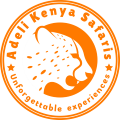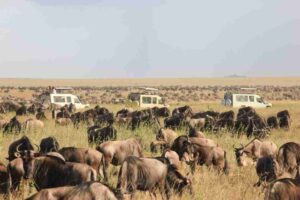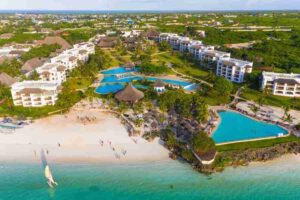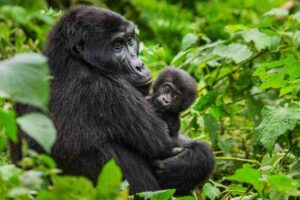| Name of the facility | Kicheche Mara Camp |
|---|---|
| Certification Achieved | Gold |
| Year opened | 2005 |
| Tourism region | Masai Mara/South Rift |
| County | Narok |
| Address | Head Office – Nairobi Map It |
| Telephone/Mobile | 020- 2493569/ 020- 2601418 |
| sales@kicheche.com | |
| Website | kicheche.com |
| Facility Notes | Mara North Conservancy covers an area of approximately 74000 acres (30,000 hectares) of land, bordering Maasai Mara National Reserve to the north therefore forming a critical part of the Maasai Mara ecosystem. The conservancy is a partnership between 12-member camps (tourism operators) and over 800 land owners; where land has been leased from individual Maasai land owners. The lease is for 15 years. |
| Energy management | The main source of power for the camp is solar energy. The solar system is fixed with a power inverter battery system.In addition, the facility has a 16KvA back-up generator that is used for welding Energy consumption records obtained are analyzed based on bed occupancy and used to set clear conservation targets. The information is also shared with staff for continuous improvement. The facility has 12 solar water heaters and one kuni boiler.The camp uses Charcoal briquettes for baking in a fuel-efficient oven. The briquettes are sourced from Nairobi. Guests are briefed on energy conservation on arrival and through information folders in the guest tents while staff is sensitized through staff meetings and departmental briefings. Energy saving bulbs are installed throughout the facility for energy conservation Rechargeable solar torches are used for lighting. The camp has a charcoal fridge for storing fruits and vegetables. |
| Environmental management | Kicheche is guided by -Kicheche Camp – corporate environmental policy outlining commitment to sound environmental management, compliance with relevant regulations, pollution prevention, creating awareness and promoting social responsibility The facility has an Environmental Management System (EMS) with clear management plans in water, energy and waste management.The facility has undertaken an Environmental Audit (EA) as required by EMCA 1999 (Environmental Management and Co-ordination Act.) NEMA reference number 5/2/332 |
| Chemical use | The facility uses biodegradable bathroom amenities from Cinnabar Green in the guest rooms. Material data sheet for the chemical are available. Fuel (Diesel) is stored in two tanks, each tank has a capacity of 2500litres.Gas storage area is caged (picture below) and precautionary signage well fixed. |
| Conservation Criteria | |
| Community Criteria | |
| Solid waste management | Kicheche Bush Camp has a waste management policy with emphasis on the three R’s principle of Reduce, Re-use and RecycleWaste is well separated from source using clearly labeled bins. It is further segregated at the waste holding area. The facility also keeps an inventory (weight) of waste (types and quantity) generated for efforts aimed at waste monitoring at source and to create waste reduction targets.Organic waste is managed through a compost pit, which is well sealed to keep off scavengers The guest rooms have water dispensers for refills. In an effort to reduce plastic waste. The camp provides re-usable aluminum bottles for use by the guest while in the camp |
| Water management | Main source of water for the camp is a borehole. Water is solar pumped into a raised two storage reservoir with a total capacity of 10000litres and distributed via gravity to the entire premises. The camp has installed a meter at the main outlet to monitor water consumptions. Water consumption records obtained are analyzed based on bed occupancy and used to set clear conservation targets. The information is also shared with staff for continuous improvement. Rain water harvesting is also conducted to supplement the main source of water. The guests are also sensitized on minimum water use using signage and “towel talks” in the rooms to promote reuse of towels and linen. Low filter shower heads and lift taps fitted in the guest tents to reduce on water consumption. The camp has a charcoal- fridge which is fixed in a water drip system to reduce on water consumption. |
| Visitor communication & education | Booklets and room information folders are available at the public area. Publications such as Big Cat Diary, Books on Birds in Maasai Mara, Visitors are briefed upon arrival on the camp’s operations, and environmental values. The guest tents are equipped with room information folders to brief the visitors on environmental conservation activities and initiatives |
| Pollution | Low light emitting solar lanterns are used for lighting the pathways at night. |
| Environmental conservation | Through charging a conservancy fee to their guests, the facility contributes to the conservation of wildlife and their critical habitats within the Mara North Conservancy. Kicheche Mara charges its guest a conservancy fee of 250 USD per guest.The camp contributes conservancy fee, lease fees and bed night feeThe facility is unfenced thus allowing free movement of wildlife.The camp supports the Mara Predator Conservation, a conservation program that aims to conserve lions and Cheetah in the Maasai Mara Ecosystem. The project involves guides and visitors |
| Waste water management | Grey water from the kitchen flows through a grease trap then to a soak pit. Grease traps are cleaned once a week, this ensures that excess grease; fats and oils are timely removed.Effluent from the laundry and showers is managed through soak pits.Black water throughout the facility is managed through a system of septic tanks and soak pits. EM-1 is added to the septic tanks to facilitate sludge digestion.Water effluent tests are conducted in accordance with Environmental Management Co-ordination (Water Quality) regulations of 2006.Ref No. NEMA/WQ/EDL/2984. |
| Purchasing and supplies | Dry goods are bought in bulk to reduce on the packaging while meat is packaged in cool boxes |
| Employment and remuneration/staff welfare | The staff at Kicheche Mara Camp have a staff committee that handles staff welfare. Employees are provided with, food, uniform, transport and accommodation facilities The staffs are paid in line with the minimum wage. The employees are given letters of appointment, code of conduct and job descriptions upon employment. |
| Staff education, communication and awareness training | Staff have been trained on firefighting skills and use of firefighting equipment. Also, the staff are regularly trained on basic First Aid Skills. Notice boards are used to facilitate communication to the staff. The staff are regularly trained per department for skills enhancement. The facility has ad hoc in house departmental staff training and sensitization The camp has an IT and English language training program targeted at interested staff. Training conducted at Mara Discovery Centre Staff are sent to Karen Blixen Hospitality School Forestry and Cooking Program to provide them with practical experience. The camp employs guides who are certified under the Kenya Professional Safari Guides Association: (KPSGA). |
| Cultural preservation and promotion/protection of local sites | – Kicheche Mara Camp promotes the local culture through following ways. Staff members dress in traditional Maasai clothes to promote the local culture. On special occasions the camp hosts local traditional dancers to entertain the visitors. The facility offers local villages visit. The visitors are sensitized on the local culture, engage in cultural dances, talks. The facility has a kid club program whereby kids are taught on how to throw spears, arrows and make fire. Every Sunday, visitors are provided with local cuisine to enhance their cultural experience. Local Elders and chiefs are invited to talks on the Maasai culture While conducting game drives, guides educate the guest on the Maasai culture |
| Benefits to local community/community empowerment | Benefits to local community/Community empowerment The facility employs staff primarily from the local area. This is in an effort to empower the local community. Approximately 70% of the permanent workers are from the local area. Casual labour is also sourced locally. Kicheche Valley has a Corporate Social Responsibility program which is implemented through Kicheche Community Trust. The Trust is based on four main pillars-health, education, community and conservation. Proceeds from the camp through the Trust are used on projects such as: Health Kicheche has supported Aitong Health clinic, the camp has donated medicines, medical books, maternity and water pump. The Kicheche community Trust also supports the Sponsored Art for Education a theater production group that create awareness on the issues such as HIV/AIDS, FGM and tribal violence. Education The trust gives bursaries to students in both primary and secondary. The trust also sponsors students at the Koiyaki Guiding School and employs several graduates as guides and trainee guides. The course focus on giving local Maasai a solid foundation in guiding disciplines Community empowerment The camp has helped develop the Mara discovery and Empowerment centre which is a community-based initiative whereby several self-help groups around Aitong have joined together to operate income generating activities such as tree nursery, beading groups and paper briquettes projects The camp also has a bee keeping project that is aimed at empowering the community through the provision of alternative income sources. The facility is a member of the pack for purpose an intuitive, where by visitors are encouraged to pack supplies that may be of need in the area they travel. |
| Cultural Criteria | |
| Health and safety | Firefighting equipment, fire exits and fire assembly points have been clearly marked and strategically placed within the facility. Firefighting equipment has been inspected and properly serviced by Amintec Solution. Last date of service was 8th March 2018.Food handlers have undergone medical tests in compliance with Food, Drugs, and Chemical Substances Act. Cap 25. The facility has an emergency procedure and emergency contacts in place included in the room information folder within the guest rooms. The facility has a well-equipped first Aid box. All the vehicles are also equipped with first Aid kits. The staff have been trained on basic First aid. Last training was in October 2017 The camp has a health and safety policy committed to compliance with relevant health and safety regulations, minimizing injuries and illness, communication to staff and visitor for continual improvement The camp is linked to (AMREF) Flying Doctors services and charter air services for emergency response. Medical services for the employees are referred to Aitong health Clinic. the facility has a doctor on call for guests and staff from Karen Blixen Camp The camp has conducted a fire safety audit to comply with factories and other places of work. Safety and precautionary signage such as highly flammable are installed in strategic areas within the camp. The facility has conducted a safety and health audit to comply with the Occupational safety and health act 2007. |
| Child labor, abuse and human rights | The camp has a child policy against child labour, abuse and human rights |
| Business Practises Criteria | |
| Entry Date | 10th November 2017 |
Kicheche Mara Camp
Safe, Sustainable, Affordable & Unforgettable Africa safari experiences that Educate, Connect, Transform and Inspire.
Your dream safari in Kenya & East Africa is just a call or email away. Contact Adeli Kenya Safaris today. Tel: +254720564538 | WhatsApp: +254720564538 | Email: info@adelikenyasafaris.com
Share this:
Why Go with Adeli Kenya Safaris
- Born, raised & based in Africa. Let u show you the Africa we know well and cherish so much
- Africa sustainable travel is our passion
- Great Value for Money. Best price guaranteed
- Experienced team of travel experts
- Knowledgeable & multi-lingual safari guides
- Safety conscious
- Fleet of well maintained vehicles
Your dream safari / holiday is just a call or email away. Contact Adeli Kenya Safaris today. Tel: +254720564538 | WhatsApp: +254720564538 | Email: info@adelikenyasafaris.com
EXPLORE OUR FEATURED EAST AFRICA SAFARI HOLIDAY DESTINATIONS
FEATURED TOURS & HOLIDAY PACKAGES BY COUNTRY
Go Wander the wonderful world with Adeli Kenya Safaris

Africa Safari Tour Packages
Africa is more than just a destination—it is a feeling, an awakening, and a journey that touches the soul in ways words can hardly capture. Africa is a continent that stirs the soul, awakens curiosity, and leaves every traveler forever changed.
Europe Holiday Packages
SouthEast Asia Holiday Packages
Middle East Holiday Packages
Indian Subcontinent Holiday Packages
Central Asia Holiday Packages
Far East Holiday Packages
Australasia Holiday Packages
North America Holiday Packages
Central America Holiday Packages
South America Holiday Packages
Cruise Holiday Packages
Adeli Kenya Safaris, Kenya safari, African safari Kenya, Wildlife safari Kenya, Kenya wildlife tours, Kenya game drives, Safari holidays Kenya, Kenya safari tours 2025, Best Kenya safaris, Luxury Kenya safaris, Affordable Kenya safaris, Masai Mara safari, Amboseli safari, Tsavo National Park safari, Lake Nakuru safari, Walking safari Kenya, Hot air balloon safari Masai Mara, Birdwatching safari Kenya, Family safari Kenya, Photography safari Kenya, Cultural safari Kenya, Beach and safari Kenya, Private safari Kenya, Fly-in safari Kenya, Camping safari Kenya, Luxury tented camps Kenya, Best time to see the Great Migration in Masai Mara, Affordable family safari packages in Kenya, Luxury safari lodges in Kenya with private game drives, Walking safaris in Laikipia conservancy, Hot air balloon safari over Masai Mara at sunrise, Best birdwatching spots in Kenya during November, Family-friendly safari resorts near Nairobi, Photography tours in Amboseli with Kilimanjaro views, Cultural experiences with the Maasai tribe in Kenya, All-inclusive beach and safari packages in Kenya coast, Private guided safaris in the Chyulu Hills, Fly-in safari to remote areas of northern Kenya, Budget camping safaris in Tsavo East National Park, Luxury tented camps in the Mara Triangle for honeymooners, Best wildlife viewing in Kenya during the dry season (July-October), Ethical wildlife safaris in Kenya supporting conservation, Small group safari tours in Kenya for solo travelers, Wheelchair accessible safari options in Kenya, Kenya safari itineraries for first-time visitors, Best Kenya safari for seeing rhinos, Tanzania safari, African safari Tanzania, Wildlife safari Tanzania, Tanzania wildlife tours, Tanzania game drives, Safari holidays Tanzania, Tanzania safari tours 2025, Best Tanzania safaris, Luxury Tanzania safaris, Affordable Tanzania safaris, Serengeti safari, Ngorongoro Crater safari, Zanzibar safari, Tarangire safari, Lake Manyara safari, Ruaha National Park safari, Nyerere National Park (Selous) safari, Kilimanjaro safari (often combined with wildlife), Mahale Mountains chimpanzee trekking, Gombe Stream chimpanzee trekking, Best time to see the Great Migration in Serengeti, Luxury lodges in Ngorongoro Crater with wildlife viewing, Family safari packages in Tanzania with beach extension, Walking safaris in northern Tanzania, Hot air balloon rides over the Serengeti plains, Birdwatching tours in Lake Manyara National Park, Cultural tours in Tanzania combined with safari, Affordable camping safaris in Tanzania’s southern circuit, Photography workshops on Tanzania safaris, Honeymoon safari packages in Serengeti and Zanzibar, Wildlife safaris near Arusha for short trips, Chimpanzee trekking tours in western Tanzania, Best Tanzania safari for seeing the Big Five, Small group safari tours in Tanzania for solo travelers, Tanzania safari itineraries including Kilimanjaro trek, Ethical and sustainable safari options in Tanzania, Fly-in safaris to remote parks in Tanzania, Best time for wildlife photography in Tanzania, Tanzania safari deals and discounts, Serengeti Great Migration river crossing tours, best tour company in Kenya, best safari company in Kenya, best tour operator in Kenya, best travel company in kenya, best travel agency in kenya, best kenya safari company, nairobi safaris, nairobi kenya safaris, kenya safaris, safari in kenya, kenya wildlife safaris, kenya safari tour, kenya tours, Best responsible tours and travel agency in kenya, Best responsible tours and travel company in Tanzania, Best responsible tours and travel company in Zanzibar, Best responsible tours and travel company in Uganda, Best responsible tours and travel company in Rwanda, Best responsible tours and travel company in Botswana, Best responsible tours and travel company in Namibia, Best responsible tours and travel company in South Africa, Best responsible tours and travel company in Mauritius, Best responsible tours and travel company in Seychelles, Best responsible tours and travel company in Madagascar, Best responsible tours and travel company in Mozambique, Best responsible tours and travel company in Egypt, Best responsible tours and travel company in Israel, Best responsible tours and travel company in Thailand, Best responsible tours and travel company in East Africa, Best responsible tours and travel company in Eastern Africa, Best responsible tours and travel company in Africa, Best responsible tours and travel company in the world, Best responsible tours and travel company in Thailand, Best responsible tours and travel company in Malaysia, Best responsible tours and travel company in Croatia, Best responsible tours and travel company in Vietnam, Best responsible tours and travel company in Dubai, Best responsible tours and travel company in Singapore, Best responsible tours and travel company in Brazil, Best responsible tours and travel company in America, Best responsible tours and travel company in Canada, Best responsible tours and travel company in Europe, Best responsible tours and travel company in Greece, Best responsible tours and travel company in Turkey, Best responsible tours and travel company in Faroe Islands, Best responsible tours and travel company in Morocco, What is ecotourism, responsible travel, best green tourism company in kenya, best sustainale travel company in kenya, best ecotourism ompany in kenya, best sustainable travel practices, best things to to do in kenya, best things to to do in Nairobi, best things to to do in kenya, best things to to do in Mombasa, best things to to do in kenya, best things to to do in kenya, best things to to do in Nakuru, best things to to do in kenya, best things to to do in Naivasha, best things to to do in kenya, best things to to do in Maasai Mara, best things to to do in kenya, best things to to do in Kisumu, best things to to do in kenya, best things to to do in Amboseli, best things to to do in kenya, best things to to do in Tsavo West, best things to to do in kenya, best things to to do in Tsavo West, best things to to do in kenya, best things to to do in Samburu, best things to to do in kenya, best things to to do in Tanzania, best things to to do in kenya, best things to to do in Zanzibar, best things to to do in kenya, best things to to do in Uganda, best things to to do in kenya, best things to to do in Uganda, best things to to do in kenya, best things to to do in Rwanda, best things to to do in kenya, best things to to do in Mauritius, best things to to do in kenya, best things to to do in Seychelles, best things to to do in kenya, best things to to do in South Africa, best things to to do in kenya, best things to to do in Mozambique, best things to to do in kenya, best things to to do in Madagascar, best things to to do in kenya, best things to to do in Zambia, best things to to do in kenya, best things to to do in Israel, best things to to do in kenya, best things to to do in Dubai, best things to to do in kenya, best things to to do in Thailand, best things to to do in kenya, best things to to do in Greece, best things to to do in kenya, best things to to do in Santorini, best Tour Operator in Kenya, bestTour Operators in Nairobi, Tours in Kenya, Travel Agency in Nairobi, safari, kenya safari, kenya tours, tours and travel kenya, eco safaris, ecotourism, eco tourism, responsible travel, green tourism, agro tourism, east african safari air, kenya tanzania tours, africa tours, masaimara safari, tanzania safari, kenya travel, africa safari, nairobi safari, kenya safari tours, african safari, kenya safaris from nairobi, kenya wildlife safari, serengeti safari tour, safar tours & travels, best tour operators, luxury african safari tours, best african safari for seniors, african safari and beach package holidays, africa safari camp, kenya safari packages, kenya safari holidays, uganda safari packages, best places to go on safari in africa, best african safari itinerary, kenya wildlife safari packages, deal africa, travel operators, tour africa safaris kenya, luxury safari company, east african safari packages, safari travel companies, top safari tour operators, african safari travel agent, africa travel deals, trip safari, best safari experience, african safari photography, kenya holidays 2018, kenya safaris from nairobi, kenya safari, kenya holiday packages, kenya holidays, weekend getaways in nairobi, holiday destinations in kenya, weekend getaways in kenya, kenya safari holidays, tours and travel kenya, domestic holiday packages in kenya, kenya safari packages, tour operators in kenya, kenya destinations, kenya holidays 2017, kenya travel, kenya tours, tours and travel companies in kenya, kenya safari tours, safari kenya, kenya holidays 2018, kenya safari prices, holidays in kenya, travel agencies in kenya, dubai holiday packages from kenya, cheap holiday packages in kenya, cheap holiday destinations in kenya, getaways in kenya, kenya safari all inclusive packages, kenya all inclusive resorts, cheap january holiday deals, dubai holiday packages from dubai, vacation places in kenya, affordable holiday destinations in kenya, holiday getaways in kenya, trip kenya, kenya safari beach holidays, kenya safari vacation packages, travel package holidays, best travel package deals, trip to kenya safari, kenya’s best DMC, Kenya’s best tour operator ‘ Kenya’s best travel agency , Africa’s best DMC , Africa’ best tour operator , best kenya tour companies, luxury tour companies in kenya , why I love kenya , #whyilovekenya , join up safaris kenya , budget safaris in kenya , flying packages kenya , beach safaris in kenya , top rated tour companies in kenya , rooftent camping in kenya, safaribookings , tripadvisor, photography safaris in kenya , , best Tanzania safaris , kenya and Tanzania safaris , Tanzania road safaris , Tanzania flying packages, dubai packages , south Africa holiday packages, Seychelles holiday packages , Mauritius holiday packages , easter holiday packages , Christmas holiday packages , Wildebeest migration, kenya wildebeest migration, wildebeest migration kenya, wildebeest migration in Kenya, masaimara national reserve, travel kenya, traveling to kenya, travelling to kenya, kenya travel advisory, kenya travel advice, travel in kenya, travel agents in kenya, travelling in kenya, traveling in kenya, kenya travel agents, travel to kenya advice, travel advice to kenya, travel agents kenya, travel advisory to kenya, travel agency kenya, travel advisor kenya, travel alerts kenya, travel agencies kenya, kenya travel agencies, travel deals kenya, travel diaries kenya, kenya travel tips, tour operators in kenya, kenya tours and safaris, tours in kenya, tours and travel kenya, tours kenya, tours of kenya, kenya tour companies, tours and travel in kenya, tour to kenya, kenya tours and travel companies, kenya wildlife tours, tours and travels in kenya, trip to kenya, trips to kenya, kenya trip, kenya trips, trip to kenya Africa, trip advisor kenya, kenya trip advisor, visit kenya, visiting kenya, kenya visit, where to visit in kenya, why do people visit kenya, kenya tourism, tourism in kenya, tourism kenya, tourism of kenya, kenya and tourism, kenya safaris, safaris in kenya, safaris kenya, kenya lodge safaris, african safaris kenya lodge safaris kenya, safaris to kenya, kenya camping safaris, kenya african safaris, camping safaris kenya, kenya tourist attraction, tourists in kenya, tourist attraction in kenya tourist spots in kenya, kenya tourists, kenya tourist spots, why do tourists visit kenya, kenya holiday, holidays in kenya, holidays to kenya, kenya holidays, holiday in kenya, holidays kenya, holiday to kenya, holiday kenya, kenya travel guide, travel guide kenya, kenya guide, travel guide to kenya, kenya information guide, kenya tour packages, kenya holiday packages, kenya vacation packages, kenya packages, holiday packages in kenya, kenya travel packages, holiday packages kenya, kenya package, kenya holiday package, kenya tour package, kenya package holidays, travel packages kenya, kenya safaris packages, places to visit in kenya, kenya places to visit, best places to visit in kenya, tourist places in kenya, places to see in kenya, kenya tourist places, places in kenya to visit, places to visit kenya, go kenya tours, go kenya, places to go in kenya, go to kenya, where to go in kenya, going to kenya, why do people go to kenya, why go to kenya, information on kenya, kenya information, kenya travel information, information kenya, information of kenya, holiday destinations in kenya, kenya destinations, tourist destinations in kenya, kenya holiday destinations, kenya tourist destinations, best holiday destinations in kenya, kenya as a tourist destination, holiday destinations kenya, blogs in kenya, travel blog kenya, kenya blogs, blogs travel to kenya, safaris in kenya, kenya safaris, safaris kenya, safaris to kenya, car hire Nairobi, car hire in Nairobi, nairobi car hire, car hire services in Nairobi, car hire kenya Nairobi, car hire companies in Nairobi, car hire nairobi kenya, cars for hire in Nairobi, car hire in kenya Nairobi, car hire services Nairobi, cheap car hire Nairobi, nairobi car hire services, car hire in nairobi kenya, car hire companies in nairobi kenya, car for hire in Nairobi, car hire companies Nairobi, 4wd car hire Nairobi, cheap car hire in Nairobi, car hires in Nairobi, nairobi airport car hire, 4×4 car hire Nairobi, car hire market, cars for hire nairobi , car hire Mombasa, car for hire Nairobi, car hire uganda , 4×4 hire Nairobi, car hire Tanzania, 4×4 car hire dar es salaam, 4×4 car hire Tanzania, car hire kenya, 4×4 car hire kenya, car hire in kenya , kenya car hire, 4×4 car hire Uganda, 4×4 car hire Arusha, kenya tours and safaris, tours in kenya, tours and travels in kenya, tours kenya, tours of kenya, tours to kenya, go kenya tours, tour to kenya , car hire companies in kenya , 4wd car hire kenya, go kenya tours and safaris, kenya wildlife tours, car hire services in kenya, terminal tours kenya, kenya tanzania tours, tours and travel in kenya , kenya budget tours , tours and travel jobs in kenya, tours and safaris in kenya , kenya adventure tours, tours kenya Tanzania, tour operators, tanzania tour operators, tours and travel kenya, tour operators in Tanzania, top tour operators, african tour operators, tour firms in kenya , car hire kenya rates , car hire in kenya prices, kenya car hire services, mombasa tour operators, cars for hire in kenya, car hire kenya prices, kenya safaris, car hire business in kenya, tour kenya, kenya wildlife safaris, safaris to kenya, kenya camping safaris, wildlife safaris kenya, african safaris kenya, kenya budget safaris, safaris kenya, kenya tanzania safaris, kenya african safaris, tour companies in kenya, kenya car hire companies, car hire services kenya, cheap car hire in kenya, tours and travel companies in kenya, tour and travel companies in kenya, kenya tour companies, executive car hire kenya, tour companies kenya, wildlife kenya safaris, safaris in kenya, travel companies in kenya , tourism companies in kenya, kenya tours and travel companies, tours and safaris companies in kenya, companies in kenya, list of companies dealing with travel tours in kenya, kenya tour, tours companies in kenya, list of tour companies in kenya, best companies in kenya, kenya companies, 4×4 camping, 4×4 holidays, camping 4×4, 4×4 excursion, kenya tours,kenya best hotels,best hotels in kenya,kenyahotels,honeymoon destinations in kenya, 4×4 kenya, Rooftemt camping in kenya, rooftent hire in kenya, Nairobi safari tours, mombasa safari tours, amboseli safari tours, nakuru safari tours, naivasha safari tours, lake bogoria safari tours, lake baringo safari tours, maasai mara safari tours, tsavo east safari tours, tsavo west safari tours, samburu safari tours, ol pejeta conservancy safari tours, aberdare national park safari tours.






